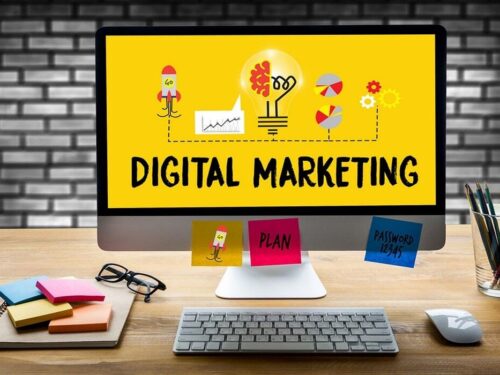Demystifying PPC: The Ultimate Guide to Digital Advertising Success
All the business houses look for scope to optimize online presence while maximising ROI. That is in today’s fast-paced digital world. Pay per click advertising has proven to be one of the most efficient marketing techniques for a modern-day digital marketing campaign. Using PPC, companies can gain measurable results and targeted traffic as well as reach ahead in the competition. Let’s start unwrapping the intricacies of PPC in this guide, useful for getting you an improved basis for achieving success in your campaigns.
What is Pay per click and How Does it Work?
PPC, short for pay per click, is an advertisement model whereby someone pays every time a user clicks on his advert. In effect, instead of earning visits organically, one buys them. These usually feature on search engines such as Google or social media sites such as Facebook.
This beauty of PPC is in its precision. Using very specific keywords, a business can hit audiences that are actively looking for their products or services. So, your marketing strategies are laser-focused on hitting potential customers and, ultimately, boosting your ROI.
PPC in Digital Marketing: Benefits
These include the following many reasons why PPC is still at the heart of a successful campaign:
Instant Results:It offers an immediate result as compared with the time-consuming results of SEO.
Targeted Advertisements: The pay per click allows the advertisers to target specific demographics, locations, and interests.
Low Cost: It is possible to pay only for actual clicks while maximizing ROI, if managed effectively.
Measurable Performance: Through analytics tools, data on impressions, clicks, and conversions is accessible, which further helps refine the strategies.
Scalability: PPC campaigns can be scaled up or down based on budget and performance.
Basic Ingredients of a Winning Pay Per Click Campaign
A well-thought-through PPC campaign will be a masterpiece. The basic ingredients for winning include the following:
Keyword Research: The right choice of keywords is the most crucial step. Identify terms relevant to your business by using tools such as Google Keyword Planner.
Compelling Ad Copy: Your ad copy needs to relate to your pain points.
Landing Pages: Landing page should be ready in tandem with the ad copy so as to not inconvenience the user experience.
Bid Strategy: Choose whether to use manual bidding or automated bidding depending on your goals.
Performance tracking: Track the performance of your campaign with analytics tools and change it accordingly based on the data obtained.
Writing Converting PPC Ads
For the best conversion, pay per click ads need to stand out among the highly competitive traffic across the digital marketing arena. Here is how to do it:
Create catchy headlines: The headline is what first attracts users. Be clear, relevant, and interesting.
Incorporate keywords naturally: Use primary keywords to align with user intent and boost relevance.
Include a Strong Call-to-Action (CTA): A Call-to-Action: Encourage action from visitors with a compelling “Buy Now,” “Learn More,” or “Get a Free Quote.”
Highlight Unique Selling Points (USPs): Highlight Unique Selling Points: Emphasize what makes your product or service stand out from all others.
Measures of PPC Success: Key Metrics to Monitor
Measure success: You would want to focus on click-through rates, which measure the number of users who clicked on your ad after seeing it.
Cost per click: the amount you pay per click.
Conversion rate: The number of users who complete a desired action, such as making a purchase.
Quality Score: the relevance or quality rating of a given ad issued by Google.
Return on investment-the amount revenue earned as related to the total campaign cost and that regularly evaluation can assist fine-tune their strategy to optimize their returns.
Avoiding common PPC mistakes
Even professionals can err when it comes to PPC campaigns. Here are a few common pitfalls to avoid to be successful.
- Negative keywords ignored Negative keywords filter out irrelevant search queries.
- Ensure your ads and landing pages are optimized for mobiles.
- Setting unrealistic budgets Budget as close to goal and industry benchmarks as possible.
- Failure to run A/B Test of different advert copies and views to determine the best.
- Failure to Monitor the ad campaigns: continuous monitoring will notify one of the faulty ads early.
Why PPC Matters for ROI-Minded Marketing Approaches
The true bedrock of ROI-driven marketing is PPC. It’s due to the ability of PPC to control budget, target desired audiences, and have measurable outcome reporting that PPC brings unmatched value. Whether launching a new product, driving seasonal sales, or building brand awareness, pay per click always puts your efforts on the low cost and high returns side of things.
Businesses can therefore devise a strong, multi-layered strategy to reach maximum ROI in PPC when supported by other modes of digital marketing such as SEO and content marketing.
Why Shag is your go-to partner for PPC success
Making it on the most on-point agency for pay per click will have the highest impact.Shag brings a level of unparalleled expertise to the task of crafting bespoke marketing strategies which, more often than not, leave their mark on real ground. Through data-driven approaches and tested ways of increasing ROI, success comes through each of your campaigns at Shag. Let Shag be your partner of choice in this increasingly complex world of PPCs.
Conclusion
Pay per click Advertising is probably one of the strongest tools that a marketer can use. In the right applications, it produces targeted traffic, enhances brand awareness, and helps in generating measurable ROI. In learning how to optimize and apply best practices, a business will be able to maximize the uses of PPC toward furthering marketing goals.






